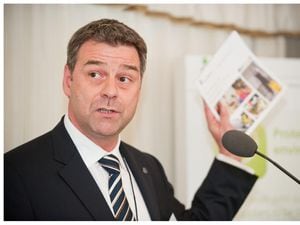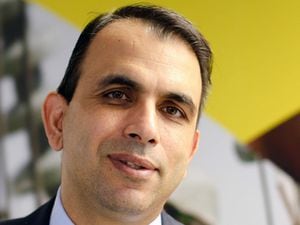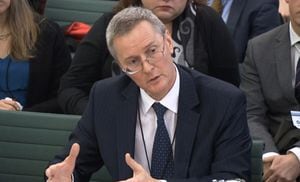'Market abuse!' Three former Carillion directors face £870,200 in fines
A trio of former directors of failed outsourcing and construction giant Carillion are set to be fined £870,200 for “recklessly” publishing misleading accounts.

The Financial Conduct Authority said that if Wolverhampton-based Carillion were not in liquidation it would have been fined £37.9 million.
The Wolverhampton-based business' former chief executive, Richard Howson, is set to get a £397,800 fine, chief financial officer Richard Adam faces paying £318,000. and former finance director Zafar Khan £154,400. Khan took over from Adam in January 2017.


The FCA said that three of Carillion’s financial statements – published on December 7, 2016, March 1, 2017 and May 3, 2017 – were “misleading and did not accurately or fully disclose the true financial performance of Carillion”.
It said the announcements made misleadingly positive statements about Carillion’s financial performance generally, and in relation to its UK construction business in particular.
They did not reflect significant deteriorations in the expected financial performance of Carillion’s UK construction business and the increasing financial risks associated with it.
The FCA found that the directors were each aware of the contractor’s deteriorating performance, but despite their awareness of these deteriorations and increasing risks, they also failed to make the board and the audit committee aware of them, resulting in a lack of proper oversight.
Although the company was deteriorating significantly in the run-up to its insolvency, Howson put significant pressure on it to meet very challenging targets.
Howson, Adam and Khan are taking the case to the UK’s appeal court, known as the upper tribunal, which will decide whether to uphold the fines or take further action. Each will present their own case.
The regulator’s announcement follows the £14.4m fine handed to Carillion’s auditors, KPMG, by the Financial Reporting Council.
FCA executive director of enforcement and market oversight Mark Steward said Carillion’s actions amounted to “market abuse”.
He said the firm’s failure to reports its real financial figures meant that its true financial position was hidden for many months, which exacerbated its financial situation, and made the situation worse for its shareholders and creditors.
Carillion's collapsed in January, 2018 owing close to £7 billion. It employed 600 at its headquarters in Salop Street and the collapse led to 2,400 direct jobs losses.
At the time Carillion was building the Midland Metropolitan University Hospital in Smethwick. The project is now six years behind schedule. Balfour Beatty took over the project after Carillion went bust.
Two of the announcements, in December 2016 and March 2017, concerned Carillion’s full-year results for 2016. Both updates told investors the company was well positioned to make further progress in 2017 on its 2016 performance. In 2016, the company made a £146.7m pre-tax profit on turnover of £4.39bn.
The May 2017 announcement was a trading update, released on the day of the company’s annual general meeting. It was titled Trading Conditions Unchanged. It included a statement from the chief executive which said: “Trading conditions across the group’s markets have remained largely unchanged since we announced our 2016 full-year results in March.
“Consequently, we continue to focus on the priorities we set out when we announced our 2016 results – namely to accelerate the rebalancing of our business into markets and sectors where we can achieve our objectives for margins and cashflows; and to manage challenging contract positions, particularly in our international markets, as these are key to achieving our objective of reducing average net borrowing.”
Two months after the AGM update, the company released a half-year trading update on July 10, announcing that it would make a £845m provision for bad contracts, of which £375m was related to UK construction projects. Net debt was also significantly higher than at the end of 2016, reaching £695m, up from £586.6m. Howson stepped down as chief executive with immediate effect.
Six months later, the company went under.





